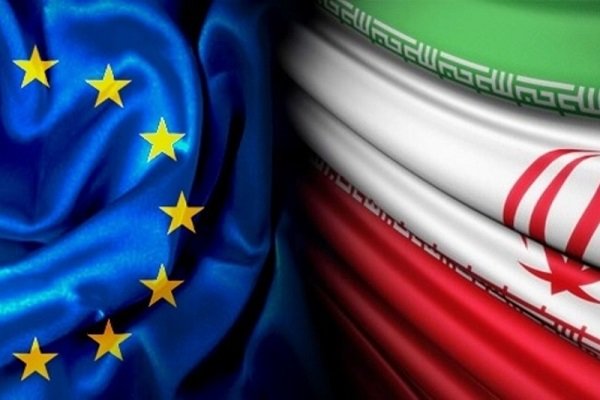EU seeks to bypass U.S. sanctions on Iran with trade finance tool

EU powers are in talks over launching a payments channel that would enable European companies to trade with Iran as part of efforts to defy U.S. sanctions and keep alive a landmark nuclear deal with Tehran.
France, Germany and Britain are working with EU officials on the finance tool ahead of November’s restoration of a second wave of U.S. sanctions that will target Iran’s oil exports and transactions with its central bank.
An official EU effort to maintain financial access to Iran would deepen a transatlantic rift after Washington warned European companies to comply with its reimposed countermeasures or be shut out of the U.S. financial system.
The goal of European policymakers is to help both EU and Iranian businesses preserve the commercial benefits that persuaded Tehran to sign the 2015 agreement to curb its atomic energy program, diplomats said.
The so-called E3 European countries — which are all signatories to the nuclear deal, along with Russia and China — have been working with the European Commission and the EU’s diplomatic service on the planned funding channel, they added.
Various ideas on how to structure the mechanism are still under consideration. “There has not been a political decision yet on what precise form an independent financing facility could take, but there has been an acceleration in the intensity of work,” a spokesperson for the French minister of finance said.
The French government has long pushed the need for an alternative financing mechanism that would allow trade with Iran to continue in the face of U.S. sanctions. Paris now believes that interest in the project, particularly from Germany, has increased ahead of the November deadline for Washington’s latest measures against Tehran.
Payments channel would enable European companies to trade with Iranian businessesThe Germany finance ministry said: “The consultations on this are intensive and they continue. There are different models on the table.”
The UK Foreign and Commonwealth Office said the UK and the EU were “currently undertaking discussions to find practical solutions to support continued economic relations with Iran, consistent with the nuclear deal”.
It is unclear whether the proposed channel could be used for payments for Iranian oil, which dominates the country’s economy, or only for other trade in goods and services.
Maja Kocijancic, an EU spokesperson, told reporters on Friday that efforts were continuing to sustain co-operation with Iran in key economic sectors, including oil. Part of the work was to ensure that companies doing legitimate business with and in Iran could still “have access to the necessary finance”, she added.
The proposed new funding channel for Iran is part of a broader European drive to save the nuclear deal after Donald Trump pulled the U.S. out in May.
The EU has put in place a so-called “blocking statute” that threatens European businesses with legal action if they comply with the sanctions the U.S. began to restore in August. A U.S. State Department official this month accused the Europeans of “putting EU companies on the railroad tracks” by forcing them to choose between breaching U.S. and European laws.
European diplomats acknowledge that the U.S. threats have already deterred many big companies, which see the risk of legal trouble stateside as too high a price to pay for doing business in Iran. But the Europeans see value both in sustaining trade involving smaller companies and in signaling to Tehran their seriousness about preserving the nuclear deal.
Another focus ahead of the November sanctions restoration is the Swift financial messaging system, which underpins many international transactions and is based in Belgium. The U.S. has not explicitly ruled out some kind of exemption for Swift, but nor has it promised it any special treatment.
(Source: Financial Times)
